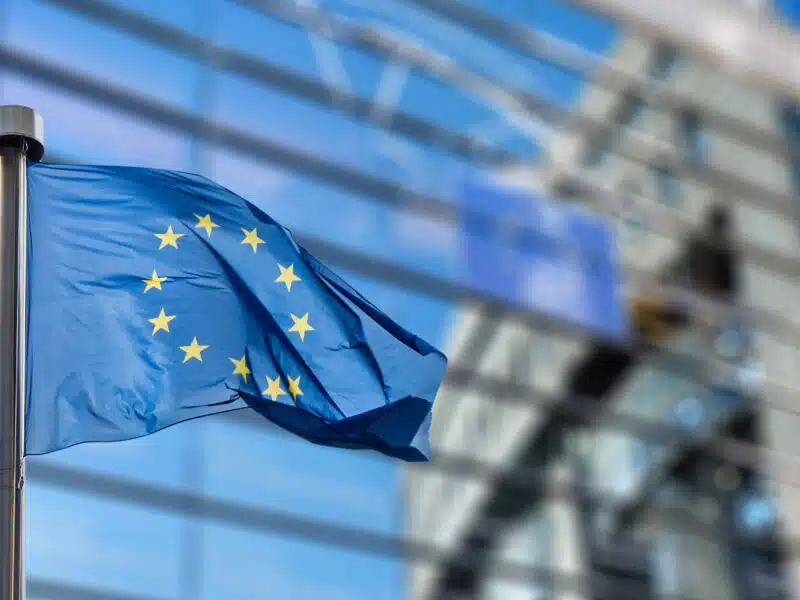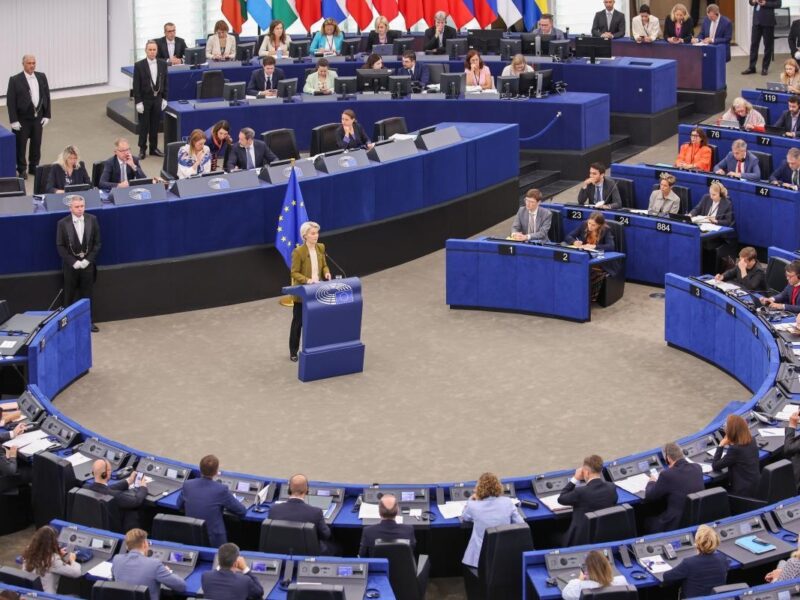Overview
The EU has set itself as global leader in setting norms and regulations in the digital space. From the General Data Protection Regulation to the Digital Services Act and the Artificial Intelligence Act, the EU legislative framework has the potential to reshape digital design standards and to be truly transformational for the digital lives of children.
“Children should be able to communicate easily with their peers with no fear of cyberattacks and cyber bullying, abuse, scams or fraud.”
Katarzyna, 14
Children’s experiences
On average, the 81 million of children living in the EU encounter hateful or violent content, as well as harmful advice on body image and self-harm, at least once a month. It is estimated that over 11 million children and young people aged 19 and younger in the EU suffer from a mental health condition. Children are continuously subjected to advertisements, loot boxes and persuasive design to keep them online. As children demand more privacy, safety and less intrusive services and products, 5Rights works hard to ensure that digital spaces offer age-appropriate experiences respecting of children’s rights and cognitive development.
Our work in the EU
From consulting with policy-makers on groundbreaking legislation such as the Digital Services Act to advocating and developing tools for their robust implementation and enforcement, the team collaborates with officials from EU institutions, the Council of Europe, European standardisation bodies as well as national authorities to build the digital world young people deserve. Through our cooperation with other key civil society actors, including children’s rights organisations and consumer groups, we ensure that children’s rights in the digital environment remain at the forefront of the political and regulatory agenda.
In focus
View all



Latest
View all
TikTok’s addictive design preliminarily found in breach of the Digital Services Act: a positive step towards protection of minors on online platforms
5Rights Foundation has been advocating for swift and robust enforcement of the DSA to protect minors online since its entry into force. The preliminary finding on TikTok addictive design is a long-awaited step to enforce European rules and finally deliver for children’s safety online.

European Parliament resolution reaffirms commitment to children’s rights online
The European Parliament has adopted its Resolution on the Protection of Minors Online: a decisive commitment towards children’s rights online and a critical acknowledgment of the importance of robust enforcement.

European Commission President recommits to putting children’s online safety above profits
Von der Leyen’s State of the Union delivers what 5Rights and partners demanded for children’s rights online in yesterday’s coalition letter

Final DSA guidelines deliver historic win for children’s rights online after years of 5Rights advocacy
The European Commission’s final guidelines on Article 28.1 of the Digital Services Act incorporate key recommendations from 5Rights’ baseline and coalition advocacy that shaped the framework from inception to adoption.

